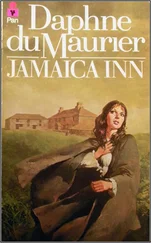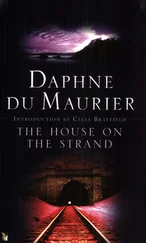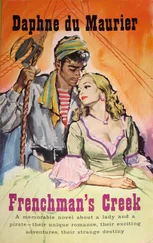'And so we lived,' he said, 'month after month, year after year. I accepted everything — because of Manderley. What she did in London did not touch me — because it did not hurt Manderley. And she was careful those first years; there was never a murmur about her, never a whisper. Then little by little she began to grow careless. You know how a man starts drinking? He goes easy at first, just a little at a time, a bad bout perhaps every five months or so. And then the period between grows less and less. Soon it's every month, every fortnight, every few days. There's no margin of safety left and all his secret cunning goes. It was like that with Rebecca. She began to ask her friends down here. She would have one or two of them and mix them up at a weekend party so that at first I was not quite sure, not quite certain. She would have picnics down at her cottage in the cove. I came back once, having been away shooting in Scotland, and found her there, with half a dozen of them; people I had never seen before. I warned her, and she shrugged her shoulders. "What the hell's it got to do with you?" she said. I told her she could see her friends in London, but Manderley was mine. She must stick to that part of the bargain. She smiled, she did not say anything. Then she started on Frank, poor shy faithful Frank. He came to me one day and said he wanted to leave Manderley and take another job. We argued for two hours, here in the library, and then I understood. He broke down and told me. She never left him alone, he said, she was always going down to his house, trying to get him to the cottage. Dear, wretched Frank, who had not understood, who had always thought we were the normal happy married couple we pretended to be.
'I accused Rebecca of this, and she flared up at once, cursing me, using every filthy word in her particular vocabulary. We had a sickening, loathsome scene. She went up to London after that and stayed there for a month. When she came back again she was quiet at first; I thought she had learnt her lesson. Bee and Giles came for a weekend, and I realised then what I had sometimes suspected before, that Bee did not like Rebecca. I believe, in her funny abrupt, downright way she saw through her, guessed something was wrong. It was a tricky, nervy sort of weekend. Giles went out sailing with Rebecca, Bee and I lazed on the lawn. And when they came back I could tell by Giles's rather hearty jovial manner and by a look in Rebecca's eye that she had started on him, as she had done on Frank. I saw Bee watching Giles at dinner, who laughed louder than usual, talked a little too much. And all the while Rebecca sitting there at the head of the table, looking like an angel.'
They were all fitting into place, the jig-saw pieces. The odd strained shapes that I had tried to piece together with my fumbling fingers and they had never fitted. Frank's odd manner when I spoke about Rebecca. Beatrice, and her rather diffident negative attitude. The silence that I had always taken for sympathy and regret was a silence born of shame and embarrassment. It seemed incredible to me now that I had never understood. I wondered how many people there were in the world who suffered, and continued to suffer, because they could not break out from their own web of shyness and reserve, and in their blindness and folly built up a great distorted wall in front of them that hid the truth. This was what I had done. I had built up false pictures in my mind and sat before them. I had never had the courage to demand the truth. Had I made one step forward out of my own shyness, Maxim would have told me these things four months, five months ago.
"That was the last weekend Bee and Giles ever spent at Manderley,' said Maxim. 'I never asked them alone again. They came officially, to garden parties, and dances. Bee never said a word to me or I to her. But I think she guessed my life, I think she knew. Even as Frank did. Rebecca grew cunning again. Her behaviour was faultless, outwardly. But if I happened to be away when she was here at Manderley I could never be certain what might happen. There had been Frank, and Giles. She might get hold of one of the workmen on the estate, someone from Kerrith, anyone… And then the bomb would have to fall. The gossip, the publicity I dreaded.'
It seemed to me I stood again by the cottage in the woods, and I heard the drip-drip of the rain upon the roof. I saw the dust on the model ships, the rat holes on the divan. I saw Ben with his poor staring idiot's eyes. 'You'll not put me to the asylum, will you?' And I thought of the dark steep path through the woods, and how, if a woman stood there behind the trees, her evening dress would rustle in the thin night breeze.
'She had a cousin,' said Maxim slowly, 'a fellow who had been abroad, and was living in England again. He took to coming here, if ever I was away. Frank used to see him. A fellow called Jack Favell.'
'I know him,' I said; 'he came here the day you went to London.'
'You saw him too?' said Maxim. 'Why didn't you tell me? I heard it from Frank, who saw his car turn in at the lodge gates.'
'I did not like to,' I said, 'I thought it would remind you of Rebecca.'
'Remind me?' whispered Maxim. 'Oh, God, as if I needed reminding.'
He stared in front of him, breaking off from his story, and I wondered if he was thinking, as I was, of that flooded cabin beneath the waters in the bay.
'She used to have this fellow Favell down to the cottage,' said Maxim, 'she would tell the servants she was going to sail, and would not be back before the morning. Then she would spend the night down there with him. Once again I warned her. I said if I found him here, anywhere on the estate, I'd shoot him. He had a black, filthy record… The very thought of him walking about the woods in Manderley, in places like the Happy Valley, made me mad. I told her I would not stand for it. She shrugged her shoulders. She forgot to blaspheme. And I noticed she was looking paler than usual, nervy, rather haggard. I wondered then what the hell would happen to her when she began to look old, feel old. Things drifted on. Nothing very much happened. Then one day she went up to London, and came back again the same day, which she did not do as a rule. I did not expect her. I dined that night with Frank at his house, we had a lot of work on at the time.' He was speaking now in short, jerky sentences. I had his hands very tightly between my two hands.
'I came back after dinner, about half past ten, and I saw her scarf and gloves lying on a chair in the hall. I wondered what the devil she had come back for. I went into the morning-room, but she was not there. I guessed she had gone off there then, down to the cove. And I knew then I could not stand this life of lies and filth and deceit any longer. The thing had got to be settled, one way or the other. I thought I'd take a gun and frighten the fellow, frighten them both. I went down right away to the cottage. The servants never knew I had come back to the house at all. I slipped out into the garden and through the woods. I saw the light in the cottage window, and I went straight in. To my surprise Rebecca was alone. She was lying on the divan with an ashtray full of cigarette stubs beside her. She looked ill, queer.
'I began at once about Favell and she listened to me without a word. "We've lived this life of degradation long enough, you and I," I said. "This is the end, do you understand? What you do in London does not concern me. You can live with Favell there, or with anyone you like. But not here. Not at Manderley."
'She said nothing for a moment. She stared at me, and then she smiled. "Suppose it suits me better to live here, what then?" she said.
' "You know the conditions," I said. "I've kept my part of our dirty, damnable bargain, haven't I? But you've cheated. You think you can treat my house and my home like your own sink in London. I've stood enough, but my God, Rebecca, this is your last chance."
Читать дальше












